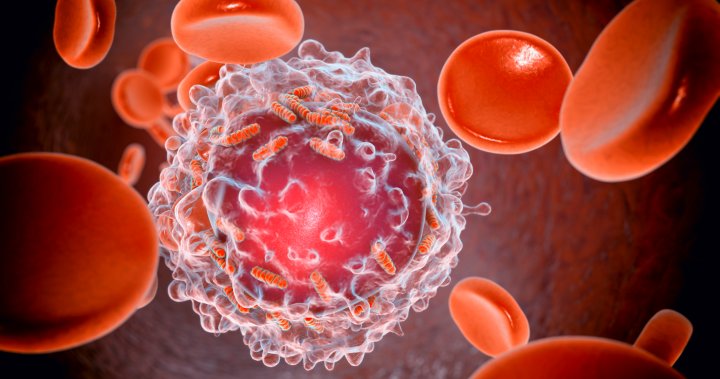An estimated 20 million new cancer cases and close to 10 million deaths were reported globally in 2022, according to the World Health Organization (WHO).
Lung cancer was the most common form of the disease that year, accounting for 12.4 per cent of total new cases worldwide, the WHO’s International Agency for Research on Cancer (IARC) reported Thursday.
Lung cancer was also the deadliest type of cancer, resulting in 1.8 million deaths worldwide, which accounted for 18.7 per cent of total cancer deaths.
Breast cancer was the second most prevalent form of cancer, with 2.3 million cases, followed by colorectal cancer (1.9 million cases) and prostate cancer (1.5 million cases), the WHO estimates, which were released ahead of World Cancer Day on Feb. 4, showed.
The data was collected from 185 countries.
“The magnitude of cancer certainly is increasing,” said Dr. Freddie Bray, branch head of cancer surveillance at IARC, during a news conference on Tuesday.
The WHO is predicting that more than 35 million new cancer cases will be detected in 2050. That is a 77 per cent increase from 2022.
The number of new cancer deaths is projected to reach 18.5 million by 2050.
An ageing population, smoking, drinking alcohol, obesity and air pollution are among the key drivers of the disease, according to the UN health agency.
Get the latest Health IQ news.
Sent to your email, every week.
“We are concerned, of course, when we make these projections based on population ageing and growth. We will see a very large increase in the incidence and mortality of the disease over the next decades unless things are done at the country level,” Bray said.
In Canada, roughly 300,000 new cancer cases were reported in 2022 and there were more than 100,000 cancer-related deaths, WHO data showed.
While 53 per cent of the new cases were among men, 47 per cent were among women. Breast cancer was the leading form of cancer in the country, with 32,080 new cases accounting for 11 per cent of total new cases.
This was followed by lung cancer, which made up 10.7 per cent of all cases and prostate cancer at 8.8 per cent.
A report published in November by the Canadian Cancer Society and Statistics Canada said lung cancer rates were dropping faster than any other form of the disease due to reduction in tobacco use.
Meanwhile, a less common form of cancer – melanoma – is also rising in the country.
While melanoma is ranked 17th globally among cancer types, in Canada it ranks sixth, with 11,383 new cases reported in 2022.
“Melanoma skin cancer we know has been increasing in many parts of the world, particularly … among white Caucasian populations in the North,” Bray said.
Intermittent sunburns that can happen on holidays in hotter destinations compared to where people are originally from can cause melanoma skin cancer, he said, adding that solar radiation is one of the key factors for this type of cancer.
Cases of colorectal cancer – the fourth most common in Canada – have particularly been increasing among the country’s younger population. Unhealthy diet, physical inactivity, smoking and alcohol consumption increase the risks for this type of cancer, experts say.
“Colorectal cancer is now a common cancer in all levels of human development in countries,” Bray said.
He said the gradual adoption of more westernized lifestyle, including changes in the diet and eating more red meat, could be a contributing factor for the rise.
Overall, cancer mortality rates are decreasing in high-income countries thanks to primary prevention, reduction of risk factors underlying the disease, early diagnosis and improvements in treatment, Bray said. But cancer control needs to improve across the world in order to bring down the number of cases and deaths, he added.
It was estimated that in 2023, 239,100 Canadians would be diagnosed with cancer and 86,700 would die from the disease, according to Canadian Cancer Society. Lung, breast, prostate and colorectal cancer make up for almost half of all new cancer diagnoses.
— With files from Katie Dangerfield
© 2024 Global News, a division of Corus Entertainment Inc.




